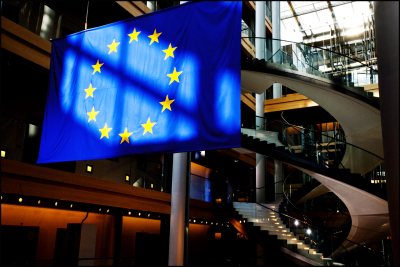On Thursday, June 15th, the European Parliament will adopt its mandate for the upcoming negotiations with the Council and the Commission on the overhaul of the EU’s Transparency Register. The negotiating mandate contains some advances welcomed by Transparency International EU, but falls short of significantly improving on the current situation.
The mandate suggests to extend coverage of the register to the Council, to make meetings with lower ranking Commission officials transparent and to increase resources for the joint secretariat overseeing the register. Yet these improvements fall short of the promised creation of a “mandatory” EU lobby register, especially where the Parliament is concerned. The relatively weak mandate is the outcome of an obscure process in which a “Contact Group” (rather than a parliamentary committee) has drafted the mandate completely behind closed doors while being difficult to reach by stakeholders and civil society and ignoring positions adapted by a broad majority in the Constitutional Affairs committee. This mandate is now expected to be adopted by the Parliament’s Conference of Presidents. You guessed it: behind closed doors and without any public record on which group supported it or not.
One key constraint is the emphasis that the inter-institutional agreement (IIA) does not infringe on the competences and prerogatives of participating institutions. This should go without saying of course, but such a principle should not stand in the way of creating a uniform system for all institutions and not lead to the creation of vastly different conditions for registration in different institutions – something that might just end up confusing everyone involved. The principle should also not lead to a situation where MEPs use their “freedom of mandate” as an excuse not to be accountable and transparent about their interactions with stakeholders.
Having been singled as one of the least transparent institution in the EU’s legislative process, the Council’s participation would significantly enhance the transparency and accountability of the EU as whole. The EP’s negotiating mandate now provides further details by defining a red line on Council’s “meaningful” participation. Member States should agree to at least cover current and upcoming Presidencies, with the sole participation of the General Secretariat deemed insufficient. Despite their crucial role in EU decision-making and them being a core target for Brussels lobbyists, MEPs do not firmly insist on including Member States’ Permanent Representations into the framework of the register. By following this logic, Member States would only be covered by the register for one year every 14 years around their presidency, not quite the “meaningful” participation expected by Transparency International.
In regards to the Commission, the call to extend the practice of only meeting with registered lobbyists from Commissioners, their Cabinets and Director-General down to the level of Heads of Units would be a step in the right direction. This obligation should of course also be applicable to officials of the secretariats of Parliament and the Council.
One key point that everyone seems to agree on by now is to provide additional resources to the Transparency Register Secretariat. With about half of the 11,000 entries containing factual errors and outdated information, it is high-time for the EU institutions to implement a functional oversight system for what has become the largest lobby register in the world. Transparency International EU also agrees wholeheartedly with the Parliament’s call to back up the register through a legislative act.
However, many caveats persist in the EP position, chief among their refusal to apply equal ethical standards to Parliament itself. While they have adopted an ambitious position regarding the Commission and the Council, they remain reluctant to apply the same transparency rules to themselves. In other terms, MEPs are not suggesting any changes for themselves according to the draft mandate. The key shortcoming is that MEPs are not committing themselves to publishing their own meetings with lobbyists.
This position by parliament is somewhat surprising given that a number of positive changes had been suggested in the Giegold report on the Transparency, Accountability and Integrity in the EU institutions. The report was endorsed by an overwhelming majority at Committee level in March. And a majority of MEPs already voted in favour of mandatory publication of meetings with lobbyists in January, albeit the majority was not large enough to change the rules of procedure. Nevertheless, the Conference of Presidents has scheduled the plenary vote on the Giegold report for after the adoption of the mandate so that any recommendations of Giegold’s report can be ignored as they “do not yet reflect the position of the Parliament”.
The Parliament had long been the champion of transparency among the three institutions. No other institution had been firmer in its request for a mandatory lobby register. It seems that now that a concrete proposal for that is on the table and that concrete action is required from MEPs they have forgotten what they had been demanding for many years.






